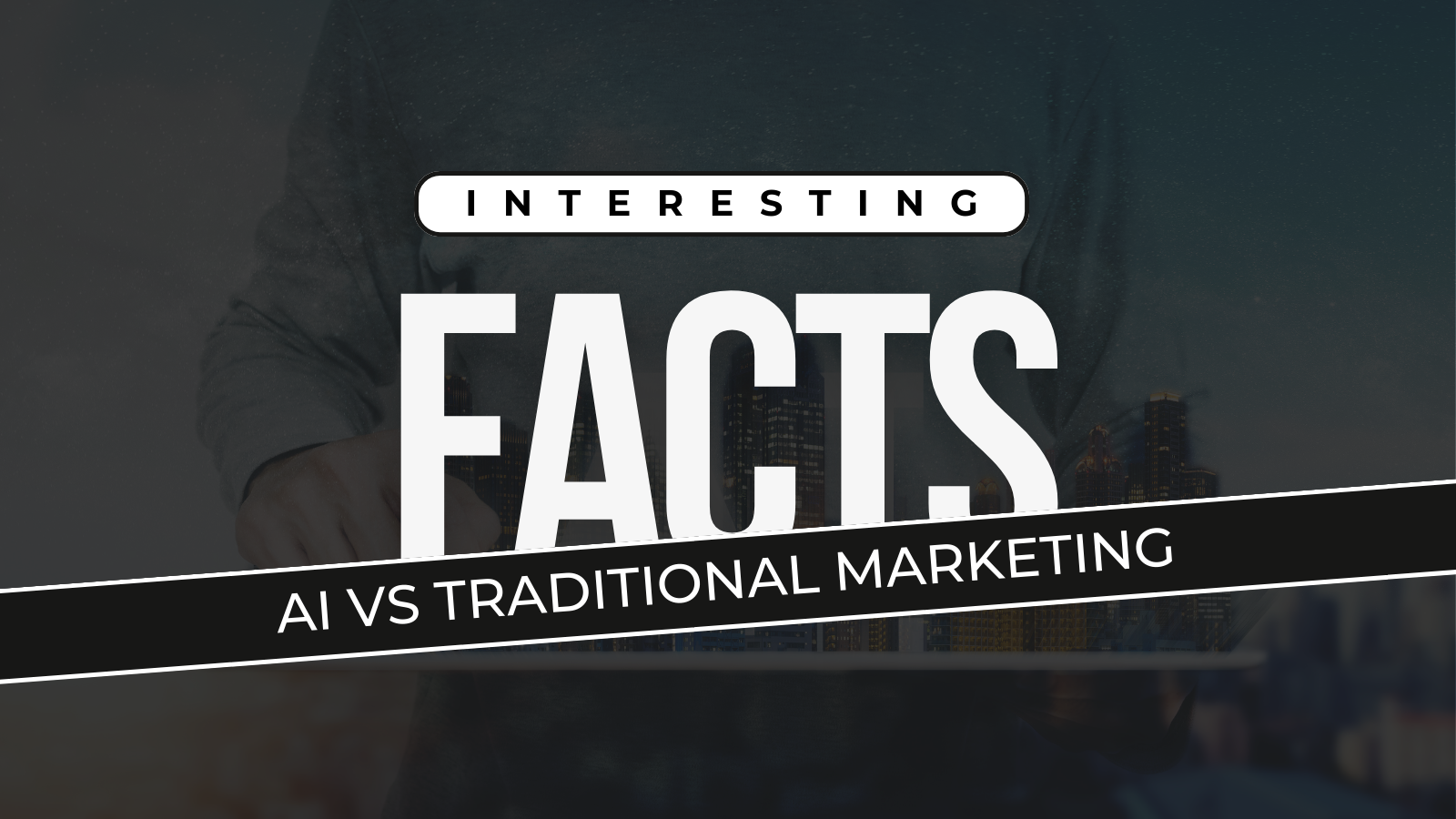- Abhishek Gupta
- Ai, ai in marketing, artificial intelligence, Marketing, traditional marketing
- 0 Comments
- 593 Views
Introduction
In the rapidly evolving digital age, the battle for supremacy between artificial intelligence (AI) and traditional marketing is intensifying. Both approaches have their merits, but which one truly takes the lead in leveraging the vast opportunities offered by technology? This article explores the strengths and weaknesses of AI and traditional marketing, and delves into the realm of possibilities for the future.
AI in Marketing: Revolutionising the Landscape
AI has revolutionised various industries, including marketing. Its ability to process massive amounts of data and perform complex analyses enables businesses to obtain valuable insights and make data-driven decisions. The following headings highlight some key areas where AI excels in the marketing landscape.
Personalization: Tailoring Experiences for Individual Customers
In the digital age, customers demand personalised experiences. AI leverages machine learning algorithms to analyse vast amounts of data, understand customer preferences, and deliver customized recommendations. Personalized marketing campaigns not only foster customer loyalty but also drive higher conversion rates.
Predictive Analytics: Forecasting Customer Behavior
Traditional marketing often relies on historical data to make predictions about customer behaviour. AI takes it a step further by employing predictive analytics. By analysing real-time data, AI algorithms can accurately forecast customer behaviour, enabling businesses to make proactive marketing decisions.
Marketing Automation: Streamlining Processes
AI-powered marketing automation tools alleviate the burden of repetitive tasks, such as email marketing, social media scheduling, and content creation. By streamlining these processes, marketing teams can focus on more strategic initiatives, saving time and increasing overall efficiency.
Chatbots: Enhancing Customer Experience
Chatbots, powered by AI, have transformed customer service. By providing instant responses and personalised interactions, chatbots enhance the customer experience, increase engagement, and troubleshoot issues effectively. With advancements in natural language processing, chatbots continue to improve over time.
Traditional Marketing: The Power of Human Touch
While AI offers significant advantages, traditional marketing strategies still retain their value. Human-centric approaches have distinct advantages and should not be overlooked, as highlighted in the following headings.
Emotional Connection: Building Trust and Loyalty
Traditional marketing relies on emotional connections to resonate with customers. Storytelling, face-to-face interactions, and persuasive copywriting all contribute to building trust, loyalty, and long-term relationships. This human element cannot be replicated by AI alone.
Creativity and Innovation: Breaking Boundaries
AI may be adept at analysing data and making predictions, but it lacks the creativity and innovative thinking of a human mind. Traditional marketing thrives on unconventional ideas, out-of-the-box campaigns, and imaginative strategies that captivate audiences and leave a lasting impression.
Striking a Balance: The Future of Marketing
Rather than an all-or-nothing approach, the future lies in striking a harmonious balance between AI and traditional marketing. By capitalizing on the strengths of both approaches, businesses can reap the rewards offered by the digital age while preserving the human touch. The following headings delve into this concept further.
Augmented Intelligence: Human and AI Collaboration
Augmented intelligence, a combination of human intelligence and AI capabilities, presents exciting possibilities. By leveraging AI to complement human creativity and problem-solving skills, marketers can achieve unprecedented efficiency and innovation.
Data Privacy and Ethics: Ensuring Responsible Marketing Practices
As AI takes center stage in marketing, data privacy and ethics become paramount. It is crucial for businesses to prioritize responsible data collection, usage, and transparency. Adopting ethical guidelines and complying with regulations will help maintain customer trust and confidence in marketing practices.
Continuous Learning: Embracing Change
The digital age is characterised by rapid change and evolution. Both AI and traditional marketing professionals must embrace continuous learning and adapt to emerging trends. By staying updated and agile, marketers can effectively navigate the ever-shifting landscape and remain competitive.
Conclusion
In the ongoing battle between AI and traditional marketing, there is no clear winner. Each approach brings unique strengths to the table, and their integration is the key to success. By combining the power of AI with the emotional connection and creativity of traditional marketing, businesses can establish a strong foothold in the digital age, forging meaningful relationships with customers and staying ahead of the competition.
Frequently Asked Questions
Q1: Can AI completely replace traditional marketing techniques?
AI has its strengths, but it cannot completely replace the human touch and emotional connections that traditional marketing strategies create. A balanced approach that leverages the benefits of both AI and traditional marketing holds the most promise.
Q2: How does AI help in personalizing marketing campaigns?
AI analyses large volumes of customer data to identify patterns and preferences, enabling businesses to tailor marketing campaigns based on individual customer needs and behaviors. This personalization boosts customer engagement and conversion rates.
Q3: What role does creativity play in traditional marketing?
Creativity is the cornerstone of traditional marketing. It allows businesses to break through the noise, captivate audiences, and establish emotional connections. Creative campaigns generate buzz, increase brand awareness, and foster long-term customer loyalty.
Q4: How can businesses ensure ethical AI usage in marketing?
Businesses must prioritize data privacy, transparency, and ethical practices when implementing AI in marketing. Adhering to ethical guidelines, complying with regulations, and being transparent about data usage are crucial to maintaining customer trust and confidence.
Q5: Is continuous learning important in the world of AI and traditional marketing?
Yes, continuous learning is essential in both AI and traditional marketing. With rapid advancements in technology and evolving customer preferences, marketers must stay updated and adapt their strategies accordingly to remain relevant and competitive.




